The city of Naypyidaw was secretly built by the Burmese military junta in the early 2000s. Its recognition as the new Burmese capital in 2005 caught everyone off-guard—both the international community and the country’s inhabitants. Shortly after the city’s inauguration, thousands of officials, military personnel, and the whole government left the former capital city, Yangon (Rangoun), to resettle 200 miles further north, in the Mandalay region. The project cost the Burmese state more than five billion dollars.
In 2012, while covering the Burmese elections in Rangoun, I took a train to the city the Burmese never really lived in. According to state documents, 930,000 people inhabit Naypyidaw, but the real figures, according to several sources, fall far below that. As soon as I got there, I realized there wasn’t a great deal to do, and ended up passing the time visiting a deserted gemstone museum, shopping in a deserted shopping center, playing golf on a deserted golf course, and visiting the city’s only zoo.
Videos by VICE
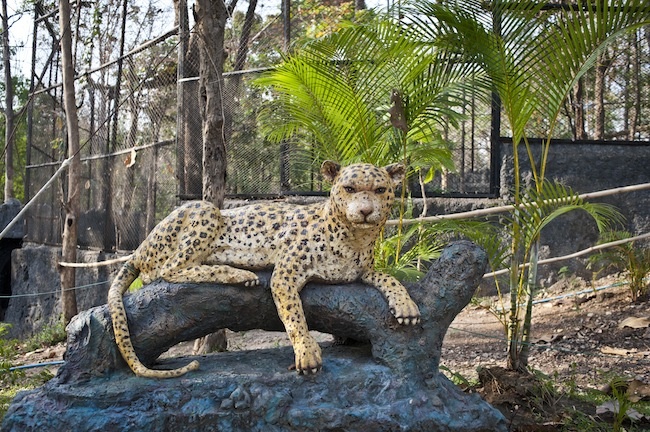
From luxurious hotels to shopping centres and even this plastic leopard, everything in Naypyidaw seems artificial – and stupid. The city is a showcase of a place not yet meant to be inhabited.
That’s how I found myself walking around Naypyidaw’s zoological garden on a very warm afternoon. Situated in the northeast of the town, between a soccer stadium that is under construction and a state-of-the-art airport (where no international company operates), Naypyidaw’s zoo reflects the megalomania that the generals in power have been nourishing since 1962. It is three miles long and shelters about 15 real animals —lions, cheetahs, a panther, two elephants, and some dolphins—alongside a number of tropical fish.
I paid for my ticket (a little over one dollar, or the average Burmese’s daily wage) and followed the only other visitors, a group of Chinese tourists. Together, in a country where barely anyone can afford a steak, we watched the lions go through several kilos of red meat. When the show was over, I approached one of the janitors. “This is Disneyland!” he told me. “Everything is artificial. It’s made to give people the impression of greatness but in reality, the whole country is in the gutter.”
An hour later and I had already walked around the whole zoo. I was sitting in the children’s park, sipping a warm Pepsi, when a group of teenagers ran by me into a huge plastic cave. I followed them and realized the place smelt like shit. Through the pen’s dirty window pane, I could make out a few sickly penguins, splashing about in stagnant water alongside floating faeces. Back in Rangoun, a friend told me that the penguins were fed fresh fish that had been flown in by plane from China—an investment that the Burmese state would never spend on its citizens.
More upbeat stories from Burma:
Is the Burmese Army Keeping Rohingya Women as Sex Slaves?
Is Burma’s Anti-Muslim Violence Led by “Buddhist Neo-Nazis”?
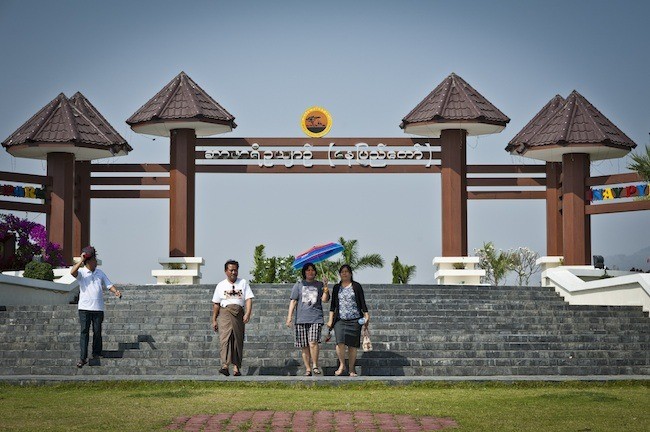
The price for a safari in Naypyidaw is higher than the average month’s salary in Burma. It is no surprise that it is meant for the ruling elite and the few tourists who venture there.
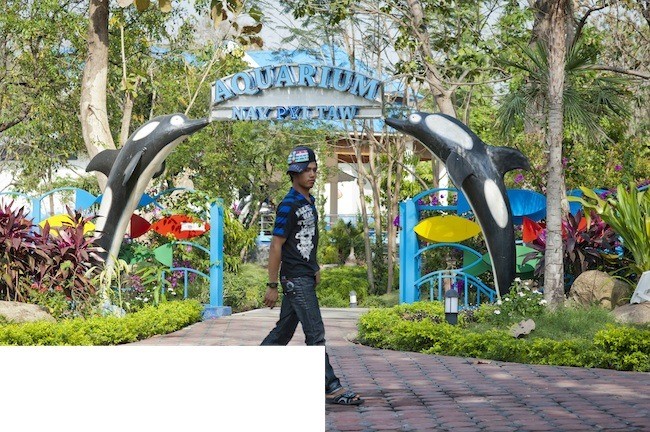
Located in the north-east of the city, the atmosphere in the Naypyidaw zoo, where white tigers stand alongside Chilean penguins, is at the same unhealthy and absurd.
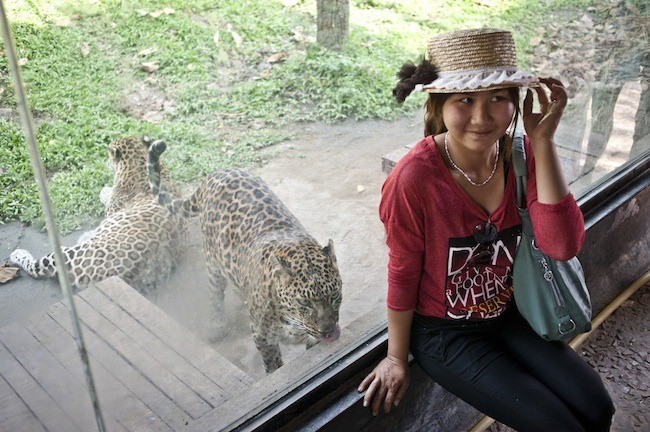
The Chinese upper class has a new favourite entertainment: posing in front of the animals and sending their pictures to their friends. In Burma, a SIM card costs around $785.
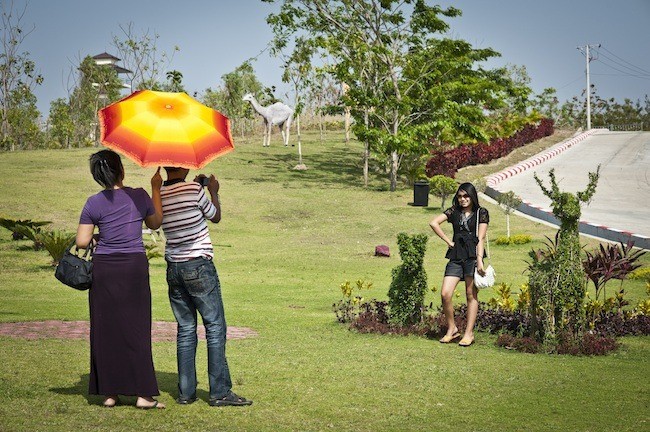
Than Shwe, former commander-in-chief of the Burmese junta, is behind the founding of the new capital city. As a true despot, he never consulted the Burmese people before spending more than $5 billion to satisfy his whim.

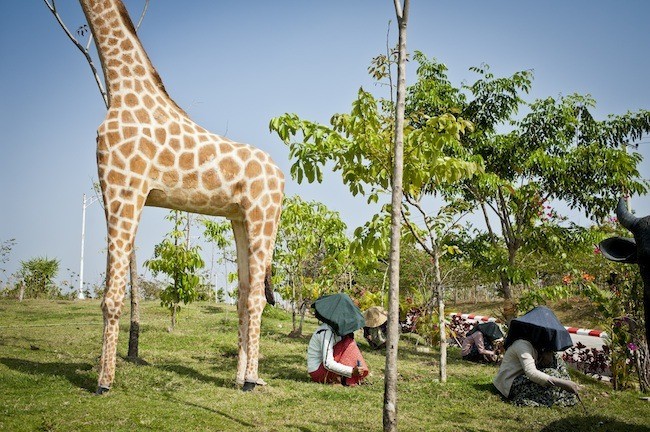
Outside the park, the employees (mostly women) are paid less than two dollars per day to rake the grass and plant flowers.
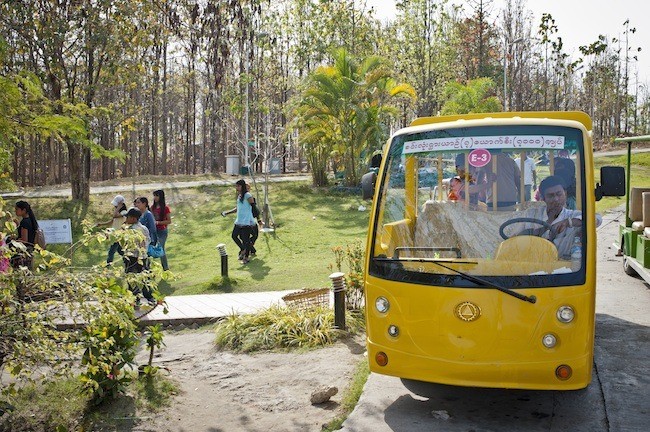
The zoo’s main attraction: six mini-penguins from Chile to which the visitors get to on this yellow minibus. While the temperature outside is close to 115 degrees, the penguins are kept in a refrigerated pen which strongly smells like shit.
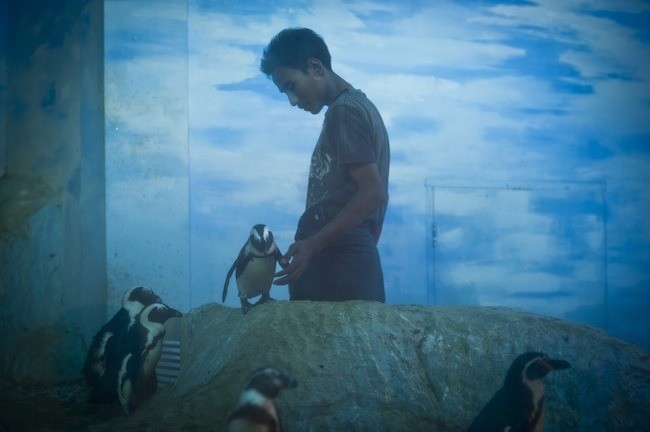
This is the inside of the pen. In a country where the inhabitants struggle to be well nourished, these little penguins are fed fresh fish imported from China.
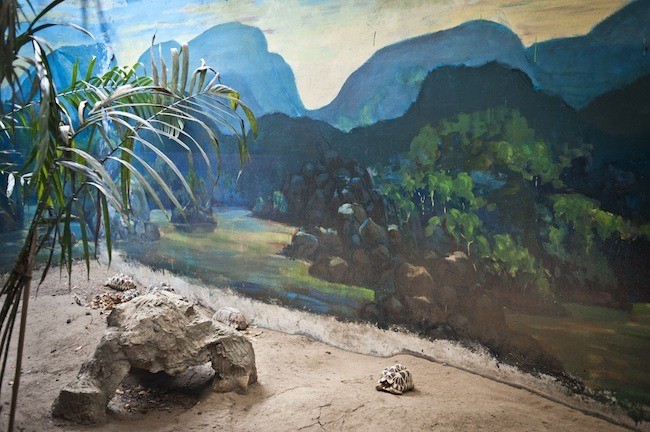
With its ridiculous demography (less than 100,000 inhabitants for a city three times as big as Paris and its suburbs), Naypyidaw is a ghost town. That is why no one ever comes to visit the zoo’s tortoises.
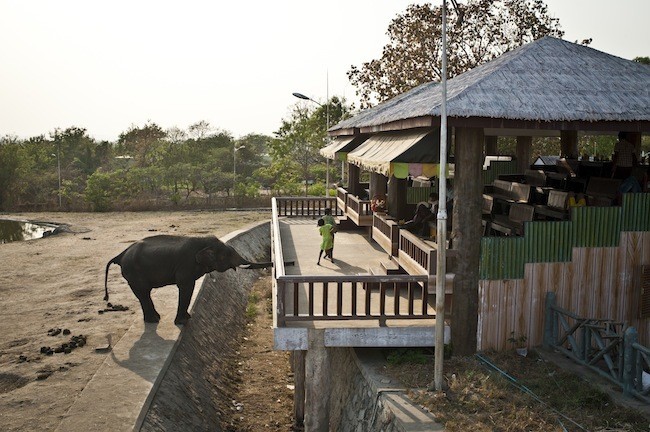
The leaflet handed out at the park’s entrance, writes that tourists may, if they wish, “go for a ride on an elephant’s back.” But the two pachyderms are confined in a pen, killing time by scaring the kids who are pissing them off.
